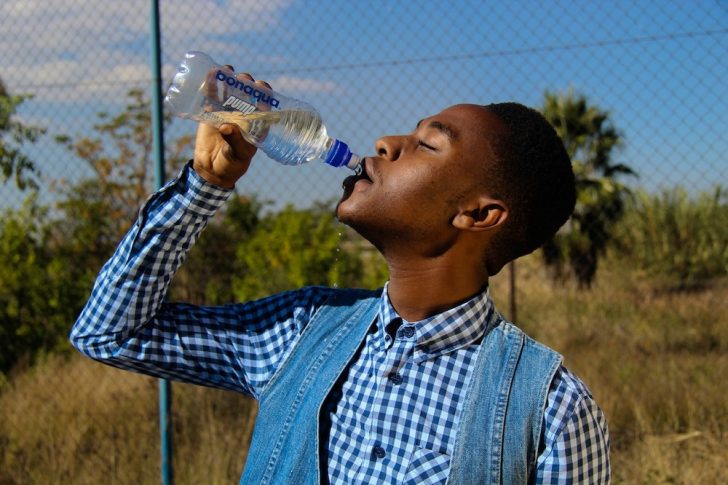Water stands as a fundamental necessity for life, and maintaining proper hydration levels is pivotal for sustaining overall well-being. However, the seemingly straightforward inquiry of how much water one should consume daily has triggered extensive debates and discussions.
In this article, we'll delve into the factors impacting your daily water requirements and offer practical guidelines to help determine the suitable amount of water for your needs.
The Importance of Hydration
Before delving into the specifics of daily water intake, let's first understand why staying hydrated is so important. Water involves every bodily function, including digestion, circulation, temperature regulation, and waste removal.

Thomas Chauke/ Pexels | When you drink enough water, you will feel better, look better, and perform at your best
Water is a fundamental component of cells, ensuring they function properly and perform their roles efficiently. It also plays a pivotal role in regulating body temperature through sweating, which prevents overheating during physical activity or in hot weather.
Moreover, water aids in the transport of essential nutrients and oxygen to cells, allowing your body to thrive. Adequate hydration also supports efficiently removing waste and toxins from the body through urine and sweat. Additionally, water lubricates joints, reducing the risk of joint pain and injury.
Factors Affecting Daily Water Intake
The ideal daily water intake can vary significantly from person to person due to several factors. It's important to consider these factors when determining your individual hydration needs.
Age is a significant factor influencing hydration requirements. Children, adults, and seniors have different hydration requirements. Children may need less water per day than adults, while older adults may require slightly more due to changes in kidney function.
Activity level plays a crucial role in determining how much water you need. People who engage in regular physical activity or have physically demanding jobs typically require more water to compensate for fluid loss through sweating.

Andre Morgan/ Pexels | Water is the most critical element of life, yet it is often taken for granted.
The amount of water needed can be affected by different climates. In hot and humid environments, increased perspiration may lead to a greater requirement for fluids to maintain proper hydration. Diabetes and kidney disease are among illnesses that can also influence an individual's water needs, potentially requiring specific adjustments to daily intake.
When dealing with specific health concerns, seeking personalized advice from a healthcare professional is recommended for tailored guidance on hydration. Unique life stages like pregnancy and breastfeeding demand additional water intake to support the growth and nourishment of the baby.
The composition of your diet significantly impacts overall hydration. Foods rich in water content, notably fruits and vegetables, contribute to meeting daily hydration goals. Conversely, diets high in salt or processed foods might escalate the necessity for increased water consumption.
Guidelines for Daily Water Intake
Despite the individual variations in hydration needs, you can follow some general guidelines to stay adequately hydrated.

Arina Krasnikova/ Pexels | Your body is a temple, but only if you treat it as one
The classic "8x8 Rule" suggests drinking eight 8-ounce glasses of water daily, totaling about 64 ounces or approximately 2 liters. While this guideline is straightforward, it may not suit everyone, especially those with high activity levels or specific health conditions.
Listening to your body is crucial. Pay attention to your body's signals for thirst. If you're thirsty, it's a clear sign that you must drink more water. Additionally, monitoring the color of your urine can be a helpful indicator of proper hydration; pale yellow is a sign of adequate hydration.
Increasing fluid intake to compensate for water lost via sweating is essential for physically active individuals or those living in hot climates. Drinking water before, during, and after exercise is recommended to maintain hydration.
Customize your water intake based on your factors. If pregnant, consult your healthcare provider to determine your specific hydration requirements, including water-rich foods in your diet, such as watermelon, cucumbers, and oranges, can also contribute significantly to your overall fluid intake.
Finally, it's essential to strike a balance and avoid overhydration. While staying hydrated is crucial, excessive water intake can lead to hyponatremia, where blood sodium levels become dangerously low.








